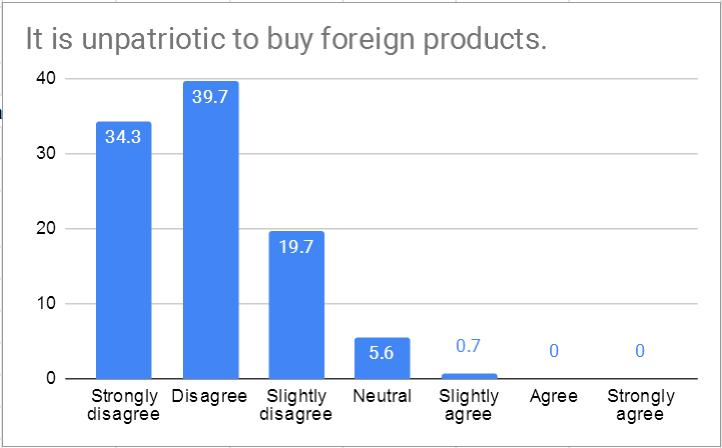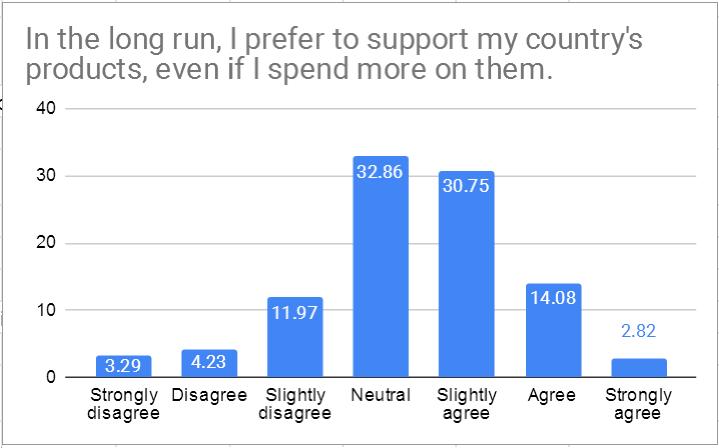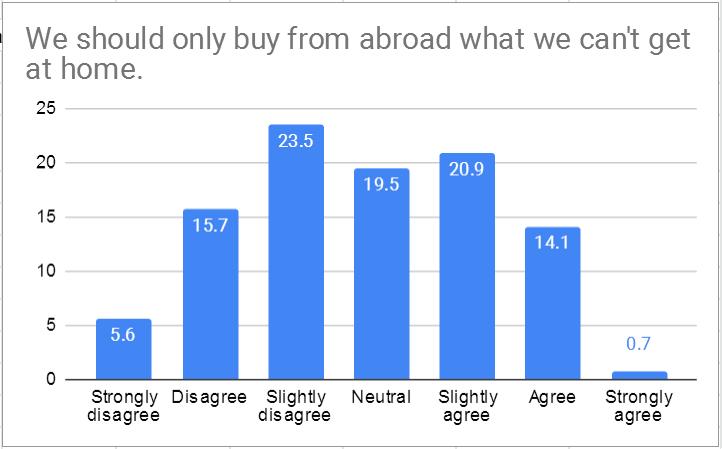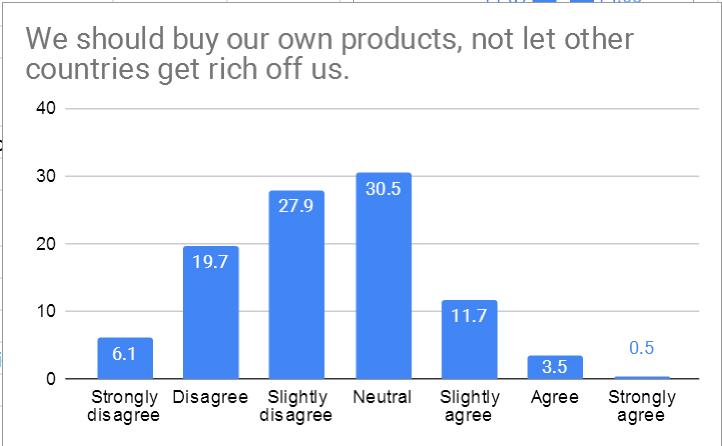
Is it unpatriotic to buy foreign products.
If you asked 400-plus wine consumers in China–who drink at least once per month–how many do you think would agree with this statement?
The answer, according to a survey in May, is three.
Yes, just .7 percent answered “slightly agree”, “agree” or “strongly agree.”

Even if we accept that regular wine drinkers have already tried and are fond of imported wines, I think such a result will be met with disbelief.
In any case, nationalism, wine and China is a regular topic the past few years.
For example, as the U.S-China trade dispute escalated, importers of U.S. wine here didn’t just face higher costs and, in turn, pressure to increase prices. Nationalism was another potential concern.
Would consumers avoid U.S. wine for love of country or for fear of what others might think about buying products from a nation in a trade war with China?
We’ve witnessed many such issues over the years, such as when a luxury goods brand makes a cultural faux pas and “hurts the feelings” of China–apparently all 1.4 billion people at once– and that, in turn, inspires calls for consumer boycotts.

In terms of wine, we saw it most recently with a suggestion by the Chinese ambassador to Australia that his nation’s consumers might shun products from Down Under, including wine, if Australian authorities pushed for an international investigation into the origins of COVID-19.
But the question is how likely are Chinese consumers to really stop buying a product, such as Australian or American wine? For sure, measures can be taken to prevent them even getting it, like Customs delays, but what if they are free to choose?
Would they shun imports and look to domestic brands, as many in China’s struggling local wine industry must hope?
Here are a few more results from the survey. (Please remember this is just one survey of 400-plus people in a niche. More data is needed to decipher broader trends.)

Nearly half of respondents say they are willing to support local products even if they cost more. This might be good news for many local boutique wines, which are generally quite pricey. (It’s too bad these respondents weren’t asked how much more they would pay.)

Respondents also showed support for local products over imported ones, if they were an adequate replacement, although the number who agreed is far short of a majority. Some Chinese producers already posit that their wines are as good as foreign ones but, based on sales, it doesn’t seem that consumers agree. And consumers seeing the two as interchangeable does seem key here.

Finally, an even smaller number, under 16%, agreed people should buy Chinese products rather than letting other countries earn the revenue. Compared that to the 53.7 who disagreed. At least in this sample, a lot of people aren’t buying that argument.
Oerall, this quick look–and again, this is just one small survey–that there is support for domestic goods, especially if equivalent to foreign ones, but it is not unpatriotic or wrong to buy those imports. Put another way, that consumers should buy whatever they want.
Given some support for local goods, it leads to the question of why China’s wine industry is doing so poorly — production and sales have long been flagging despite local wines winning thousands of medals and kudos from top critics. With all that success, production and sales should be going up, not down, right? But that’s a topic for another post.
I look forward to the final published results of the survey and will report back when those are available. I will also write more soon on these kinds of issues, including growing calls for “Chinese people to drink Chinese wine”, the use of “Chinese characteristics” in the wine industry, how the visit by Chinese President Xi Jinping to a local vineyard this week might help sales, and more.
Grape Wall has no sponsors of advertisers: if you find the content and projects like World Marselan Day worthwhile, please help cover the costs via PayPal, WeChat or Alipay.
Sign up for the free Grape Wall newsletter here. Follow Grape Wall on LinkedIn, Instagram, Facebook and Twitter. And contact Grape Wall via grapewallofchina (at) gmail.com.

Leave a Reply
You must be logged in to post a comment.